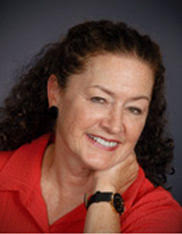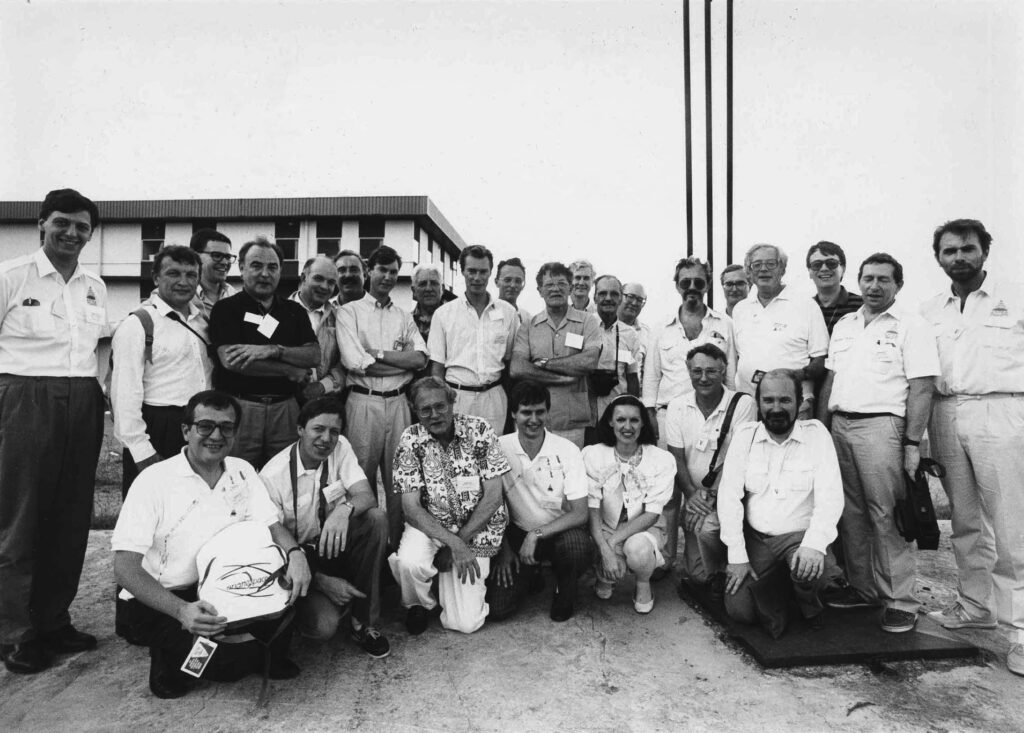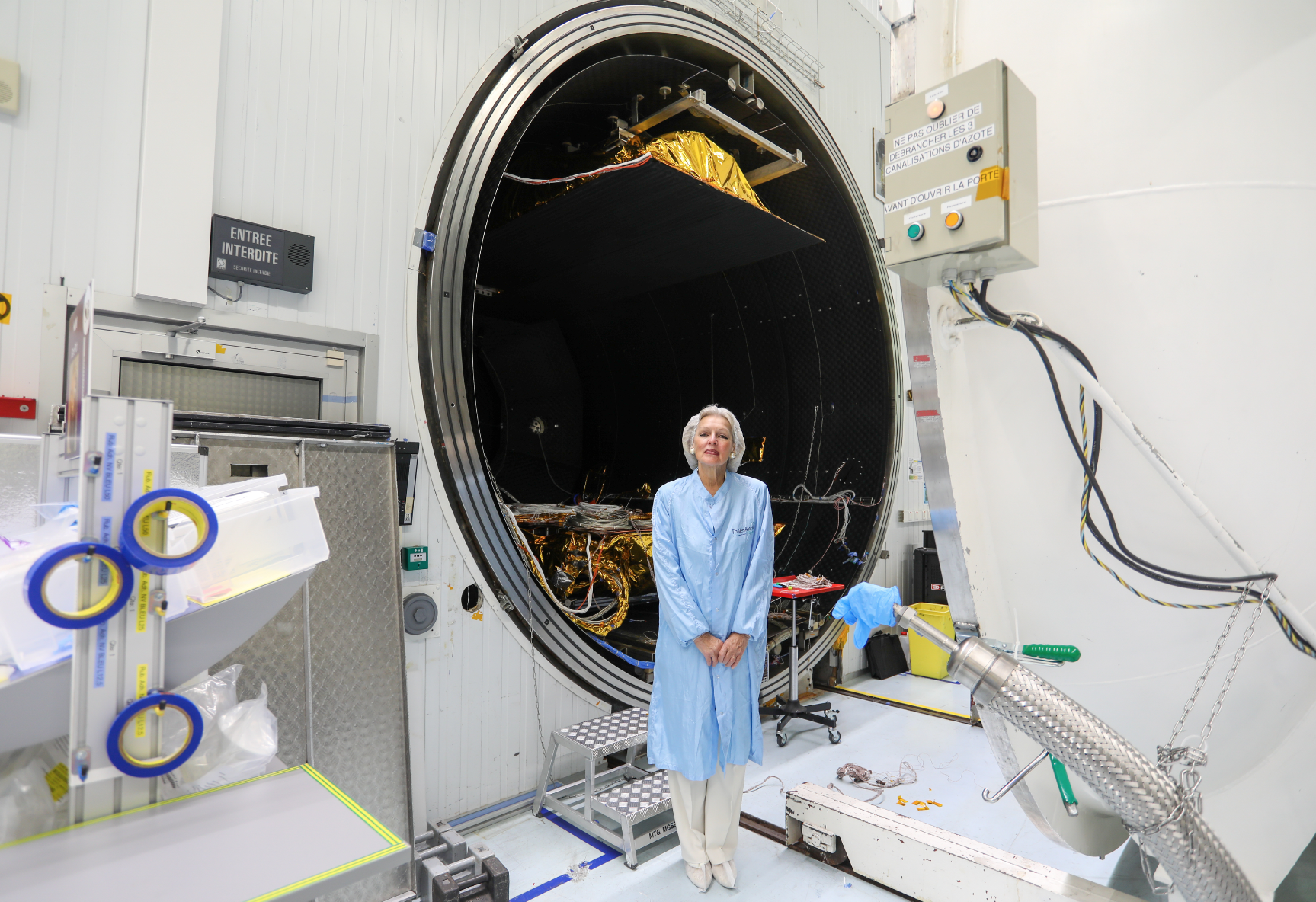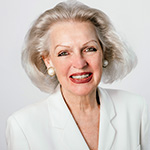Three GTWN Board members share their insights as digital tech pioneers and offer some advice to current and future digital generations, on creating a valuable legacy by following your career ambition while holding fast to your human values.
Incubating change
Walda W. Roseman, Chair, Arthur C. Clarke Foundation
Looking back on the legacy created by pioneers of the modern digital technology sector, I am struck in particular by the impressive contrast between my early days and today in terms of the role and number of women in the industry.
My career began as a journalist and editor for school administrators in the early 1970s where I found myself editing a publication on educational technology. The blue-sky baby of the educational community was cable television. Schools were gaining access to dedicated cable channels through the local franchise processes. Regrettably, most such channels were not being used because, mainly, teachers didn’t know how to use them. One of the first schools that successfully did launch programs was in Reading, Pennsylvania, where the teachers put their 10-year-olds in charge of producing a news program. That piqued my interest in both the capabilities of technology and the essential roles that young people could play in the new media environment.
It also led me in 1974 to the then White House Office of Telecommunications, which was becoming an incubator for more open telecom markets, global satellite communications, and much more. One of the “mores” was terrestrial mobile communications. OTP was leading the way for release of government held spectrum to private services, beginning with amateur radio. Needless to say, OTP developed powerful enemies among such established players as AT&T and commercial broadcasters and was moved to the Department of Commerce as the National Telecommunication and Information Administration.
While the power of direct White House backing might have diminished, the seeds had already been sown for more open communications markets, development and release to the public of spectrum and advancing technology, and a growing focus on international communications. For most of my career, one of my key focuses was encouraging governments worldwide to understand potential economic and social benefits of more open telecommunications markets. Today we can mark significant progress in bringing communications services to heretofore unserved and underserved populations, but this job is still unfinished.
I’ve had a fortunate career, catapulting professionally into the midst of perhaps the most pivotal time for advancing communications and its benefits. It came when there was some awareness that hiring a woman for a professional post was good legal insurance. For most of my career, I was the sole woman executive, seldom occupying a position that had previously existed. We women had to continually prove our value. Being the sole senior woman also had pluses and minuses, which I won’t fully enumerate, other than to say that in addition to having fascinating jobs, it made me a visible target by some. I’m grateful to the men who chose to mentor me and have my back.
I’m shortcutting my career because I want to make a few points about the future. In 1990 as Director for International Communications at the FCC and then with my own advisory company, much of my focus shifted to the International Telecommunication Union. Once again, I often found myself as the only woman in a negotiation or the only one of a handful of women who attended ITU meetings.
In 1992 I decided that the 13 women (a jump from five the previous year) at its Administrative Council should meet each other over dinner. That was the launch of 26 years of gatherings of the women over breakfast during key ITU meetings. When these ITU Women’s Breakfast networking programs caught the attention of Candace Johnson, the GTWN was born, starting with the GTWN Power Breakfasts.
With growing visibility, the breakfasts began to swell in numbers and influence. These lasted through 2014, when women’s programs shifted into higher gear. We worked to see the day when women would be given opportunities to develop their talents, gain the recognition they deserved, and lead global industry organisations such as the ITU and major digital and communications tech companies. Today Doreen Bogdan- Martin is the Secretary-General of the ITU.
I also engaged the ITU between 2001 and 2010 in a collaboration to drop Youth Forums into its regional and global Telecoms. The Youth Forums were attended by a young man and woman from virtually each ITU member. We linked the young women with the professional women in the breakfast meetings, resulting in some wonderful mentoring. Many of these young people went on to become a major influence in their countries and globally in the communications sectors.
So can I reach any conclusions that the digital generation might find helpful?
Let me try these:
- Growing participation and leadership of women in communications bodes favorably for the future of women and for the positive power of communication technologies.
- We women, however, are not automatic panaceas for what challenges the industry. The heart of our power might well derive from our holding true to our values and to the purposes behind what we hope to achieve. The workplace doesn’t always make this easy. We’ve advertised that “if only women ruled the world, things would be better,” so let’s make sure they are.
- As much as we know about the future of technology and how it might wisely be developed, young people — our digital and mobile denizens — might see the future differently. We would be smart to involve them directly in our visioning and business and technology planning.
- We can wield our corporate influence and collective powers as women to promote hands-on creativity and innovation in the schools for boys and girls, extending it beyond STEM to include the arts and humanities. This isn’t just a “woman thing.” The future of the communications business and much, much more depends on the talent that we help flow forward.
Walda Roseman has had a distinguished career as an executive, strategist, advocate, ICT expert, and entrepreneur, primarily in the satellite, international information and communications technology, Internet, and entertainment sectors. She has also devoted her energies to promoting social and economic development worldwide through technology and public policy. She was honored by the UN agency for ICT, the International Telecommunication Union, with its Gold Medal for advancing the roles of women in ICT and empowering young people to embrace technology and creativity as tools for positive economic change.
Ms. Roseman is Chair of the Arthur C. Clarke Foundation. She served as founder and CEO of CompassRose International, an international advisory firm that she established in 1993 and led until she joined the Internet Society in 2011. At the Internet Society she served as Chief Operating Officer and Chief Strategic Communication Officer. Ms. Roseman founded the first international communications office of the Federal Communications Commission. She held executive positions with Intelsat, the Corporation for Public Broadcasting, National Public Radio, and the former White House Office of Telecommunications Policy.
Ms. Roseman has been active on the boards of a number of professional, non-profit, academic, and arts organizations. In addition to the Arthur C. Clarke Foundation, she sits on the Board of Chesapeake Musis. She has served as a member of the Boards of Youth Service America and on the US ITU Association, as a founding member. Her former Board activities also include service as Vice Chairman of the of the American Refugee Committee (now Alight), the ITU Telecom Advisory Group, including as Chair of Africa Telecom 2001, where she launched and chaired the ITU Youth Forum (2001-2010). She was a member of the Norwich University MPA Advisory Board and has served as Adjunct Professor at George Washington University. She is an alumna of Cornell University and studied in post-undergraduate programs at Harvard University and Texas A & M.
Digital legacies for rural and developing regions
Heather E. Hudson, Ph.D., J.D., Professor Emerita, University of San Francisco, and Affiliate Professor and former Director, Institute of Social and Economic Research (ISER) University of Alaska, Anchorage.
Legacy is a formidable term. It is hard to believe that I began a career in communication for rural development fifty years ago (as a graduate student)!
I have been fortunate to have played a small role in helping to bring satellite communications to remote Alaskan villages and helping to extend access first to telephony and then to the Internet and broadband in remote and developing regions of the far North and the global South.
I have learned from many people – including academics and policy makers, but most of all from the people I have met in rural communities from Alaska to Alice Springs, and Tonga to Timbuktu. They told me why they needed reliable telecommunications – to get help in emergencies, to stay in touch with distant family members, to follow up on promises made by visiting officials, to order supplies and market their products, to organize for their own development.
Among the key components of this era for ICT4D (ICTs for Development) are:
Innovation: I have been privileged to know some of the Internet founders and innovative engineers who designed the first satellite equipment for rural communities. Technical advances have been astounding – from mainframe computer chips in mobile phones, from narrowband to broadband, from analogue to Gigabits, from two-way to multipoint communications including teleconferencing and social media.
Ingenuity: I have witnessed numerous examples of rural users’ ingenuity — from a university extension worker in the South Pacific who pulled on two strings she tied to an antenna to point it at a satellite, to a young Cree trapper using GPS to download coordinates for his trapline in the Canadian North, to young Inuit texting updates on whale sightings in the Arctic Ocean.
Competition: The “perceived wisdom” early in my career was that telecommunications were a natural monopoly optimally provided by one entity. Competitors soon emerged, often providing cheaper services connecting more subscribers. However, this monopoly mentality persists among some incumbents, who continue to insist that introducing competition would force them to abandon investment in remote regions.
Indigenous/small providers: Some rural residents now provide their own communication services. They may operate community networks, typically using fixed wireless to provide Internet access. Others may also provide Internet telephony (VOIP), mobile services, and their own middle-mile networks. Indigenous providers in northern Canada have partnered with government agencies to offer online high school completion and telemedicine in remote communities. Yet facilitating small and local providers is often overlooked as a means of both extending services and creating jobs in rural communities.
Sustainability: Providers need business models that can sustain ongoing operations following Capex investment in network infrastructure. Rural networks can also facilitate community sustainability by providing “smart” services such as monitoring wind and solar energy to minimize use of fossil fuels, and connecting sensors and drones to monitor crops, wildlife, and climate trends.
Yet challenges remain:
Research: We will still need to understand how ICTs can contribute to social, cultural, and economic development; which strategies work and which should be discontinued; what users need to know and what challenges they face.
Access and affordability: The digital divide may continue to shrink, but it is not likely to disappear, as users will require more bandwidth and technological upgrades to keep up with new applications. And incentives or subsidies may be required to reduce prices for low-income users.
New Skills: The Internet and whatever comes next will continue to offer new opportunities to share, to learn, to create. But the need for “digital literacy” will also evolve – how to harness Artificial Intelligence (AI) and understand its threats and limitations, how to identify misleading content, how to protect privacy, how to ensure that users’ communications are secure.
So what legacy are we handing on to the digital generation? Despite the progress in bringing the Internet and broadband to rural and remote communities around the world, there is still much work for younger generations to do to ensure that the gains we have made are preserved and that the benefits of digital technology are distributed equitably.
An Inuit resident of Arctic Alaska commented: “As Iñupiaq people … we adapt. We have always adapted.” I am confident that digital generations in rural and developing regions will also continue to adapt – and to innovate.
Dr Heather Hudson is Professor Emerita at the University of San Francisco, and Affiliate Professor of Communications Policy and former Director of the Institute of Social and Economic Research (ISER), University of Alaska Anchorage. Her research focuses on applications of information and communication technologies for socio-economic development, regulatory issues, and policies and strategies to extend affordable access to communications, particularly in Indigenous and developing regions. She has planned and evaluated communication projects in more than 50 developing countries and emerging economies, including the Pacific islands, the Caribbean, Asia, Africa and the Arctic. She has also consulted for many international and development organizations. Professor Hudson is the author of numerous articles and several books.
She can be reached on LinkedIn or at hehudson@alaska.edu
A global legacy of entrepreneurship
Candace Johnson, Chair of the Advisory Board and Partner, Seraphim Space; Founding Vice Chair, NorthStar; Executive Board Member and Vice Chair Policy Commission International Chamber of Commerce; Member of the Board and Chair Nomination and Remuneration Committee VusionGroup; Co-Founder of SES and Chief Architect of SES Global; Founder Teleport Europe, Europe Online, VATM and OWNSAT (Oceania Women’s Network Satellite), first investor in Kacific; Co-founder GTWN, GBRW (Global Board Ready Women); President Emeritus EBAN and Sophia Business Angels.
Although today many people feel that digital technology is a phenomenon of the late 20th century, it has been informing and shaping our lives for more than two centuries. Ada Lovelace realized that Charles Babbage’s Analytical Engine was really “a link…between the operations of matter and the abstract mental processes of the most abstract branch of mathematical science”, thus becoming the world’s first computer programmer. Today, we would call her a true protagonist of AI.
Just as then, when people were worried about being replaced by machines and predicting dire consequences of letting technology go rampant, the human at the center of our universe has found ways of harnessing technology and applying it for the betterment of mankind.
Thinking about what my generation is handing down to the digital natives of today, I began to reflect on my own childhood experiences and how the home environment I grew up in had a profound impact on my own lifelong belief in the value of entrepreneurship and personal drive.
My earliest memories are of coming home every day and finding boxes of punched computer cards that my mother and my father were working on. My father was an Air Force officer and data and telecommunications pioneer and in that role was working on such projects as ARPANET, the Apollo Mission and the US’s first satellites, etc. My mother was working nights punching computer cards to make ends meet and feed and educate a family of four on a young military man’s salary. This mundane, selfless work of my mother helped to raise a PhD in Game Theory, two serial entrepreneurs in telecommunications and data communications and a CIO/CAO of one of the world’s largest financial institutions.
From my parents’ example I learned my work ethic and also that technology could be used to achieve good outcomes – for yourself, but most importantly, for many others as well.
To the universe, and beyond
Throughout my professional career, I have been privileged to continue, as my mother and father did, in a micro and macro way to use digital technology to advance the quality of life on the planet and in the universe.
Photo courtesy of Marcel Tockert/Photothèque de la ville de Luxembourg
Digital technology democratizes communications amongst peoples, geographies, networks, and devices. It facilitates medical advances and renders healthcare accessible for billions. It unlocks secrets of our origins and our universe and disintermediates traditional distribution processes and supply chains. When applied in its best well known forms of the Internet and the Internet of Things, it reduces costs, creates the “Death of Distance” (Frances Cairncross, 1997), and, as the Deputy Chairman of Goldman Sachs, Bob Hormats famously said in 2001: “There has never been a commercial technology like this in the history of the world, whereby from the minute you adopt it, it forces you to think and act globally”.
A global impact
I look back with satisfaction and a certain amount of pride that very often I was able to use “digital technology” to help create a better life for the citizens of our planet during the first 40 years of my career:
- helping introduce D2, the first private mobile digital network in Germany; fighting for fair competition in data network provision with the VATM, (Association of Private Telecom Operators)
- introducing satellite digital television to the world with SES;
- providing digital telecommunication networks in eastern Europe thus “leapfrogging” the legacy networks of western Europe with Teleport Europe;
- helping teach kids in Lebanon and mothers in Kenya to learn how to code and program via Youth2Youth and Manas2Mamas with Raspberry Pi’s; and
- bringing Broadband Internet to schools, hospitals and villages across the Pacific with the Kacific satellite system.
Photo courtesy of Thales Alenia Space
These advances were achieved despite the fact that many times, then as now, the ‘status quo’ operators, systems, and organizations fought, often ferociously, to keep their own legacies intact by declaring “the sky is falling” and “We cannot let the newcomers in – They will ruin the system!” Indeed! Looking back over my 4 decades in the industry, I see that there were always the “naysayers” against new technologies – usually those who thought they had the most to lose. But thankfully there were also always the innovators and entrepreneurs who saw a bright new future and worked to bring it about.
But entrepreneurs do not operate in a vacuum and need the help and assistance of other bright and enthusiastic people of vision. Enlightened politicians and governments such as M. Pierre Werner the Prime Minister of Luxembourg who enabled the creation of the world’s largest private satellite system in his little country; Viviane Reding, the European Commission Vice President who fought against the continuation of mobile roaming charges and introduced GDRP to protect citizen’s data rights were integral members of the change makers. The positive success of the GDPR regulation is now inspiring and informing the current European AI legislation, the only attempt by governments, innovators, entrepreneurs, corporations and users to create a positive framework for society and the economy to balance profit from AI with protecting those who are vulnerable.
Space is the new frontier
Over the past decade I have been extending my scope of activities in space and my entrepreneurial legacy to exciting new ventures and new technical frontiers in the following roles:
- Chair of the Advisory Board and Partner of Seraphim Space, the world’s largest Space Tech Venture Fund;
- Founding Vice Chair of NorthStar Earth and Space, the world’s first space-based Space Situational Awareness network which will work to maintain “Clean, Safe, Accessible, and Peaceful Space for All”;
- Vice Chair of the European AI Institute, working for a humanistic AI; and
- Vice Chair of the Policy Commission and Executive Board Member of the ICC – International Chamber of Commerce, the world’s largest organization of business devoted to being ‘Merchants of Peace’ and actively involved in bringing a digital transformation to international trade.
All of these roles, although they may at first glance seem disparate and unconnected, have one thing in common. They are all addressing new entrepreneurial opportunities created by digital transformation.
Lessons for the future
The Internet and Digital Technology spawned a breeding ground for innovators and entrepreneurs to help solve the world’s biggest challenges. As we all now tackle the opportunities and challenges provided by AI and Generative AI, there are many lessons to be learned from the past.
Do not allow others to create doubt due to their own fears and insecurities. Instead, let your light shine brightly to illuminate a pathway for others to find their way.
The naysayers are usually those who represent the status quo and think they have the most to lose, whereas if they really looked at it objectively, they usually have the resources and wherewithal to gain the most from the new innovations. Above all, let us not forget our humanity and humility as we go forward.
Looking forward to the next decade, I see myself being involved more and more in the development, financing, and promotion of quantum technology as I believe it will be the ‘next big thing’, surpassing the reach and impact of even our current use of digital technology. The future has just begun!
Candace Johnson is Founder/Co-founder SES, Loral Teleport Europe, Europe Online, GTWN, OWNSAT, VATM, GBRW. Currently: Chair Seraphim Space Advisory Board and Partner, Vice-Chair NorthStar Earth & Space, Executive Board Member ICC.








